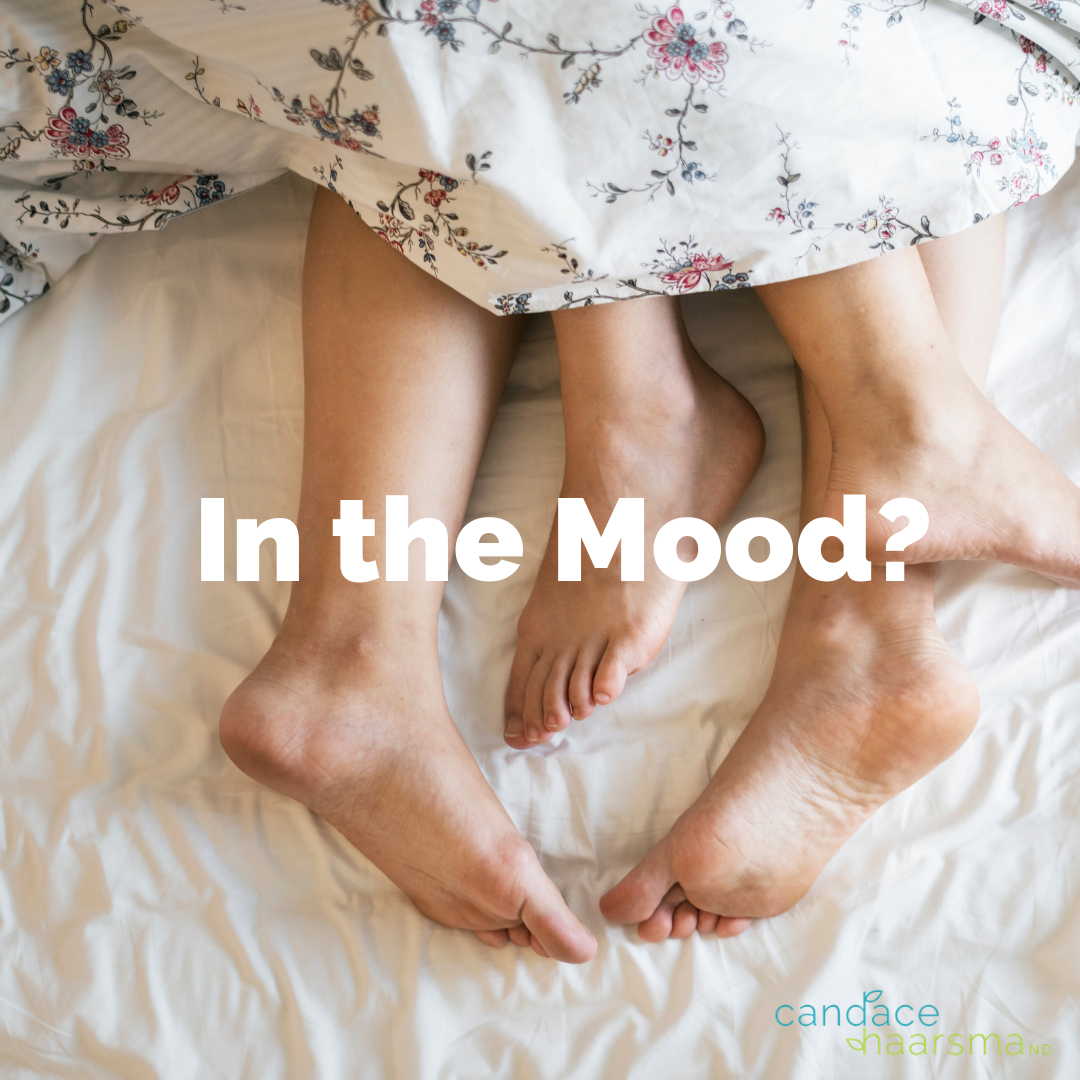
In the Mood? Part One
If you’re not often ‘in the mood’, you’re not alone. Low libido is a common concern affecting many women of various ages. Since there isn’t a definition of what a “normal” libido is or how frequently you “should” be wanting to have sex, it really is up to you to determine what is normal for you. You may not even have a problem if your level of libido isn’t concerning you or if you’re still enjoying sex when you do have it.
In the case where you do feel your desire isn’t what it used to be or where you want it to be, it’s important to explore what may be causing the change.
A woman’s desire for sex is based on a complex interaction of many components. This includes physical, emotional, relationships, lifestyle, experiences and beliefs. Sexual desire also changes with aging, health status and personal experience. Breakdown in any of these areas may lead to change in libido. Thus, all areas need to be addressed.
What are the common causes of low libido?
Common health issues impacting libido
- Hypothyroidism
- Depression and anxiety
- Hormonal issues (breastfeeding, time in menstrual cycle, peri-menopause, menopause)
- Stress and fatigue
- Medications (hormonal birth control, antidepressants, blood pressure medications)
- Vaginal or pelvic pain, vaginal dryness
- Pain during sex
Psychological and social factors affecting libido
- Low self-esteem and poor body image
- Stress
- Relationships (conflicts, communication, differing desires or practices)
- Beliefs (religious, sexual identity conflicts, guilt)
- Past history (abuse)
More about hormones…
Reproductive years
Women experience cycles in hormones that influence the menstrual cycle each month. This change in hormones contributes to a change in desire for sex, depending upon where you are within your cycle:
- Before or around ovulation women may notice increased libido
- Before and during your period, desire typically decreases
Not all women notice this, but see if you experience these changes during your menstrual cycle.
Pregnancy and post-partum
Woman often tend to experience a decrease in desire for sex during pregnancy and post-partum, which may be prolonged with breastfeeding.
Peri-menopause and menopause
Significant changes occurring during the peri-menopause and menopausal states due to lowered estrogen may also have a negative impact on sexual desire. Changes to mood and sense of well-being as well as vaginal dryness and painful sex are among the most common changes.
Libido is not just about sex. It is an important part of your vitality and overall health. So, ditch the external measures of what you think your libido “should” be, and remind yourself that what’s most important is what’s healthy and fulfilling to you.
To find out if there may be an underlying medical condition or hormonal issue leading to a change to your libido that’s concerning you, reach out to Dr. Haarsma. She’ll work with you to figure out what factors or health issues may be affecting your libido and what is best for you to improve your libido.
Also, stay tuned for ‘In the Mood?’ Part Two, with specific tips for boosting your libido.
References
Briden, Lara. Period Repair Manual: Natural Treatment for Better Hormones and Better Periods. Publisher Not Identified, 2018.
Marchese, Marianne. “Sexual Dysfunction and Reduced Libido.” The Natural Women’s Health Masterclass. 2015.
Phillips, Nancy A. “Female Sexual Dysfunction.” Am Fam Physician, vol. 62, no. 1, 1 July 2000, pp. 127–136., doi:10.1017/cbo9781139628938.007.
“7 Important Tips for Rebooting Your Sex Drive.” Aviva Romm MD, 30 Jan. 2018, avivaromm.com/is-your-libido-low/.